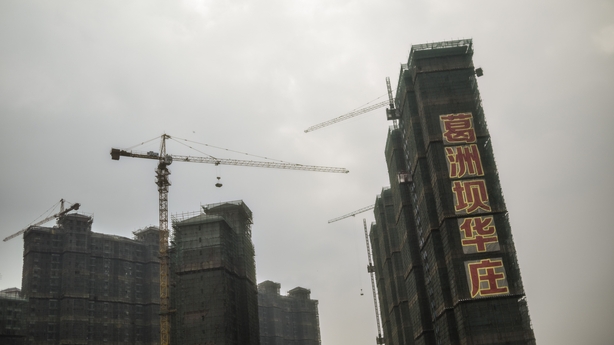Home price rises in China slowed in June for a second month in a row, adding to fears that a construction-led rebound in the economy may not be sustainable.
The property market is a key driver of the world's second-largest economy and a robust recovery in home prices and sales gave a stronger than expected boost to activity in the first half of the year.
But slowing price growth in smaller cities and cooling property investment show the bounce may already be fading, raising the risk of weaker economic growth in coming months.
Home prices in China's 70 major cities rose 7.3% in June from a year earlier, an official survey showed today, accelerating from a 6.9% rise in May.
Some of the biggest cities showed eye-popping gains on a yearly basis, with prices in the southern boomtown of Shenzhen up 46.7% and Shanghai up 27.7%.
But gains on a monthly basis continued to slow, however, as cities tightened policies amid fears of a housing price bubble.
The monthly rise slowed slightly to 0.8% in June, easing from 0.9% in May, according to a Reuters calculation based on data issued by the National Bureau of Statistics.
Prices stalled or fell on a monthly basis in 15 cities in June, compared to 10 cities in May, with all of the weakness is smaller cities.
Industrial cities Tangshan, Jinzhou and Baotou went from gains to declines month-on-month in June.
First-tier cities maintained recent rapid price rises, with Shenzhen and Shanghai rising 2% and 2.6%, respectively, on a monthly basis, faster than in May.
That could raise the risk of further property cooling measures in some areas.
The recovery in China's property market and a government infrastructure building spree in recent months have helped shore up growth in economy, which has been weighed down by weak demand at home and abroad, cooling investment and excess industrial capacity.

But there are increasing signs of fatigue in the nine-month-old property rally, raising concerns about both the economic outlook and banks' heavy exposure to mortgage lending.
Growth in investment in China's property sector slowed in first half to 6.1%, down from 7% in the months from January to May, presenting a challenge for policymakers who need the critical sector to maintain growth without creating a price bubble.
For June alone, property investment was up only 3.5% from a year ago, according to Reuters calculations, compared with 6.6% in May.
Policymakers are facing a tough balancing act. The concern is that tighter mortgage rules in the largest cities have not cooled prices enough, while fragile markets in secondary cities that are beset by oversupply likely need more stimulus to keep prices from sliding again.

